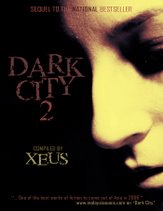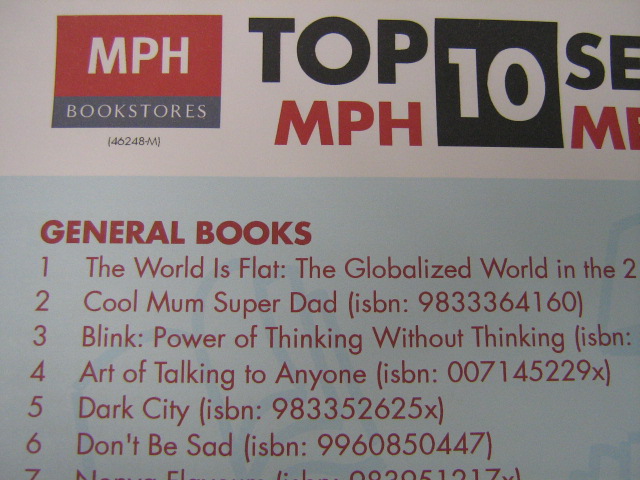Writers, there's a job for you!
Heads up everyone. There's a job at Star Weekender, full time. Editor's asked me to help her find someone.
Anyone interested?
Today is Roald Dahl day, as Ted and Sharon have blogged about already. Roald Dahl is one of those writers I actually study. And how do you 'study' a writer?
Well, when you're reading to 'study' instead of just for pleasure, you're actually taking note of the plot, turn of phrase, word usage, beginning, middle and ending etc. You're taking note of the style, the dialogue, the plot points within plot points, and how the writer builds up suspense and ends every chapter.
When I read Dahl, Poe and Jeffrey Archer, I'm actually studying their short stories and how to write twists.
When I read Margaret Atwood and Tom Wolfe, I'm studying their prose.
When I read Dan Brown, Michael Crichton or John Grisham, I'm studying their plotting and build up.
When I read Stephen King, I'm studying how to build up horror.
When I read Sophie Kinsella, Wendy Holden, Plum Sykes, I'm studying how to write humour in chick lit.
Who do you study?



12 comments:
Oooh, can I have the details please?
email me here: phil(dot)welcometomylife(at)gmail.com
Looking forward to your first three chapters of your new book too! Did you manage to meet the deadline??
When I read Dark City, I studied Xeus. ...teehee!
I automatically study EVERY book that I'm currently reading. There was a writing forum I visited once where a prominent fantasy novelist (James D. MacDonald) said that once you find yourself seriously into writing, reading will never be the same ever again. You'll be reading as a writer, and no longer as a passive reader.
He's perfectly right. I can never read without trying to examine how the author wrote a particular sentence, or examining his/her choice of words.
So knowing that, I try to read a vast range of writers possible since I haven't found my style yet (though I suspect I'm coming very close to emulating Murakami or even Raymond Carver).
When I read Alice Munro and Siri Hustvedt (Paul Auster's wife), I study how they observe and progress (or regress) relationships. I find the building of mood and tone in Auster's writing.
Reading Chuck Palahniuk is a lesson in economical writing: saying more in fewer words. His 'Choke' and 'Survivor' are prime examples.
Hey, guys, sometimes I feel that trying to be a writer somewhat spoils my reading pleasure (or adds to it, depending on how you view it!) as I try to get as much as I can from the book -- instead of just sitting back to soak myself in the story.
Hey Argus, you know what? I felt the same thing. Many times, I wish I could just switch off that 'writer in me' button when I read, so that I can read without feeling like I need to simultaneously study how the author got that smooth as silk line.
That feeling came over me again and again whenever I travel.
I used to contribute occasional travel pieces for the papers and someimes feel that I should just chuck that burden of wanting to write something back.
But recently, I think I just succeeded, went to Phuket and came back with nary a note!
(BTW, Gave you a reply about my son, in the previous post.)
Xeus, as usual, this is a good post, on what we learn from who we read....
literary fiction writers - that's why i enjoyed reading and interviewing hari kunzru and romesh gunasekera and paul bailey...i can check my hunches were right about the whys and hows of the way things were done
actually i don't get pleasure from any fiction if i'm not learning. i constantly analyse plot, how characters are built, how a crowd scene is handled ...
i think if you can read like a writer you are halfway to becoming a good writer yourself. glad you raised the topic, xeus!
Eternal Wanderer, will do. The deadline is next month actually, for the Frankfurt book fair.
Ted, you may not realize it, but you already have your own style. I noticed it in the Water Tower and then Ghost in the Garden.
Argus, sometimes I find I get jealous of how good these writers are! And why oh why can't I write like them? I get that feeling every time I read Margaret Atwood.
Ernest Hemingway is also economical with words. Too economical sometimes. He doesn't do it for me. I prefer Scott Fitzgerald.
Yvonne, reading a non fic book is also a learning process for me. When I read Dave Barry or John Grey, I always note down how they start each chapter too.
Bib, it's reading all these wonderful books that make us go, "Hey, now I'm going to try writing stuff like this myself. And even I can't write like these glorious writers, I'm going to find my own style.
I think it was Stephen King who said HP Lovecraft inspired him to write.
Xeus, I should consciously try to study the writer but usually I read it for the enjoyment. But when I come across a clever phrase, I think "wah, what a nice to put it. If I were writing it, it would turn out to be xxxxx which sounds so pedestrian." Good post. I like Fitzgerald's Great Gatsby. Good writing AND story.
Lydia, writing those kind of sentences actually take a lot of effort. The writer actually has to go over those phrases over 10 times!
xeus - sometimes you just go "oh god, i'll never be able to write like that"!
yes, even non-fiction writers can also imspire the fiction ... i learned so much from science-writer stephen jay gould about how to sell your topic to the reader - and how to craft brilliant first paragraphs
Bib, I actually think we write better with age. It seems we've acquired more reading and experience, and we subsciously learn what makes a book tick and what doesn't.
I liked your post about first sentences...."What's Daddy doing with that axe?" Charlotte's Web. Brilliant!
Post a Comment